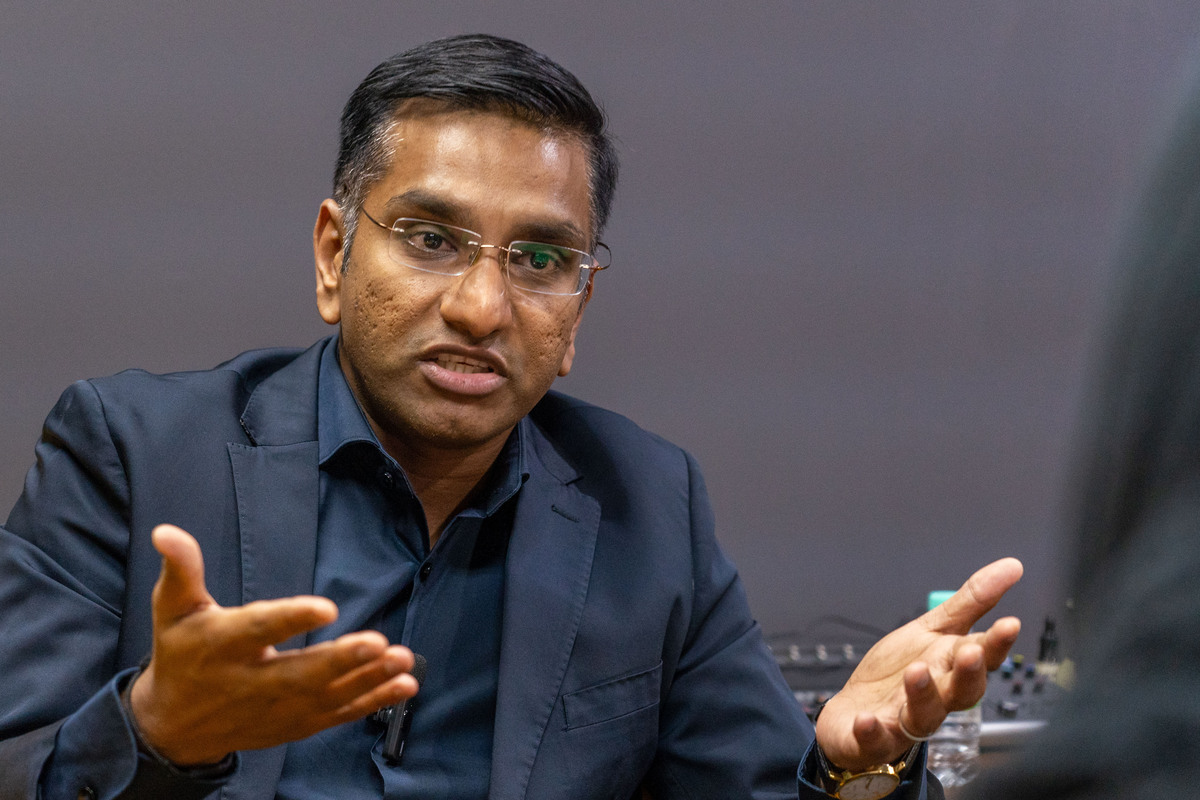KUALA LUMPUR, May 1 — Senator Dr RA Lingeshwaran has suggested retaining the parallel pathway permanently alongside local Master’s programmes for medical specialty training in Malaysia.
When CodeBlue asked the DAP lawmaker if he foresaw a scenario in the future where Malaysia can rely only on local Master’s programmes to produce specialist doctors, Dr Lingeshwaran said he would not support that as Malaysia needs to have the “best of both worlds”, local and foreign.
“Of course, the procedures that are done overseas, and of course, their technology and all that, we need to bring their modern technology, modern surgical technique and all that. We cannot be ‘jaguh kampung’ (village champion),” Dr Lingeshwaran told CodeBlue in an interview here last Friday.
“Whatever we are training here, probably we feel like we are good. Of course, I admit, Malaysian Master’s are doing well, but at the same time, we need to learn from other countries, what is their expertise, and we can share. We have to have a win-win situation from parallel pathway and also from the Master’s.”
For the current situation, Dr Lingeshwaran called for recognition of the Ministry of Health’s (MOH) parallel pathway programme with overseas royal colleges, as the number of specialist doctors produced by local universities is far smaller than those produced by the parallel pathway.
“When you look at Malaysia currently, so far, only UiTM (Universiti Teknologi MARA) has just started their cardiothoracic programme. But, when you look in the UK, the Royal College of Surgeons of Edinburgh (RCSEd), they have already started producing cardiothoracic surgeons, and currently, because of them, we have one of the world renowned surgeons in Malaysia, Dr Basheer [Ahamed Abdul Kareem].
“So, all of this is the product of our parallel pathway so we need to look up on them also. So, I support both – parallel pathway and local Master’s – I support.”
Dr Lingeshwaran, who is a former director of Sungai Bakap Hospital, said Malaysia currently has about 17,000 registered specialists. Citing a recent response from the Higher Education Minister in Dewan Negara, the senator noted that local Master’s programmes have only produced around 7,000 medical specialists since their introduction in the late 1970s.
CodeBlue found 16,817 Malaysian specialists and 285 foreign specialists listed on the National Specialist Register (NSR), totalling 17,102 registered specialists in Malaysia.
The 37-year-old first-term senator said Malaysia will need at least double or triple this figure to align with developed countries like Singapore, Japan, United States, and Australia.
In a statement last March 25, Malaysian Medical Council (MMC) president Dr Muhammad Radzi Abu Hassan, who is also Health director-general in the MOH, claimed that the MMC had never, at any time, recognised the Fellowship of the Royal College of Surgeons of Edinburgh (FRCS Ed) in Cardiothoracic Surgery qualification from the parallel pathway.
Last December, the MMC rejected applications by four pioneer graduates of that programme to register as specialists on the National Specialist Register (NSR).
Parallel pathway opponents have claimed that the MOH’s parallel pathway programme with overseas royal colleges may produce “unsafe” specialist doctors.
“I don’t think I agree with this. I think those people who are criticising (parallel pathway), they probably might have some vested interest against the parallel pathway. That is the reason,” Dr Lingeshwaran said in a response, without elaborating further.
“Because, when you say they don’t produce good surgeons, I don’t agree with this because we have Dr Rafidah [Abdullah], the nephrologist from Putrajaya, Dr Basheer – all of them are products of parallel pathway. I think they are doing super well and Dr Basheer is currently national cardiothoracic head (MOH chief cardiothoracic surgeon), and Dr Rafidah, I think, is one of the top nephrologists.
“So, all of them are practically doing well so why do you say they are not safe? I think this statement made previously by anyone else, I think, totally, I don’t agree with that. You can’t say they are not safe; they are safe,” Dr Lingeshwaran said.
Both Dr Basheer and Dr Rafidah hold qualifications from overseas. According to the NSR, Dr Basheer acquired the Fellowship of the Royal Colleges of Surgeons (FRCS) in Ireland in 2001, while Dr Rafidah attained membership in the Royal College of Physicians (MRCP) in the UK, also in 2001.
Dr Basheer currently serves as MOH’s chief cardiothoracic surgeon and head of cardiothoracic surgery at Penang Hospital. Dr Rafidah is a consultant physician and nephrologist at Putrajaya Hospital.
The parallel pathway programme was first introduced in 2014 under then-Health DG Dr Noor Hisham Abdullah (also then-MMC president), who described the parallel pathway programme as an “alternative training pathway” to produce more specialist doctors in Malaysia.








